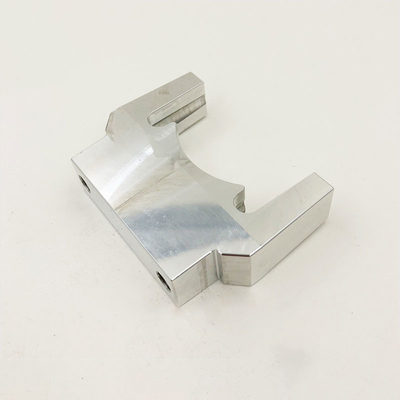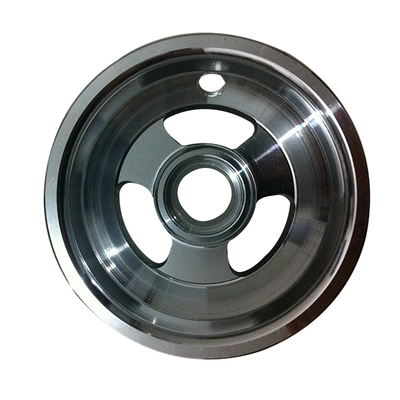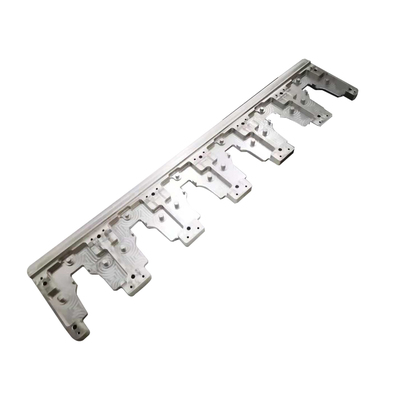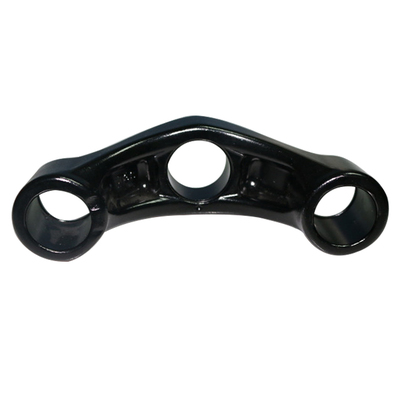Development and Research Status of Medical Titanium Alloys
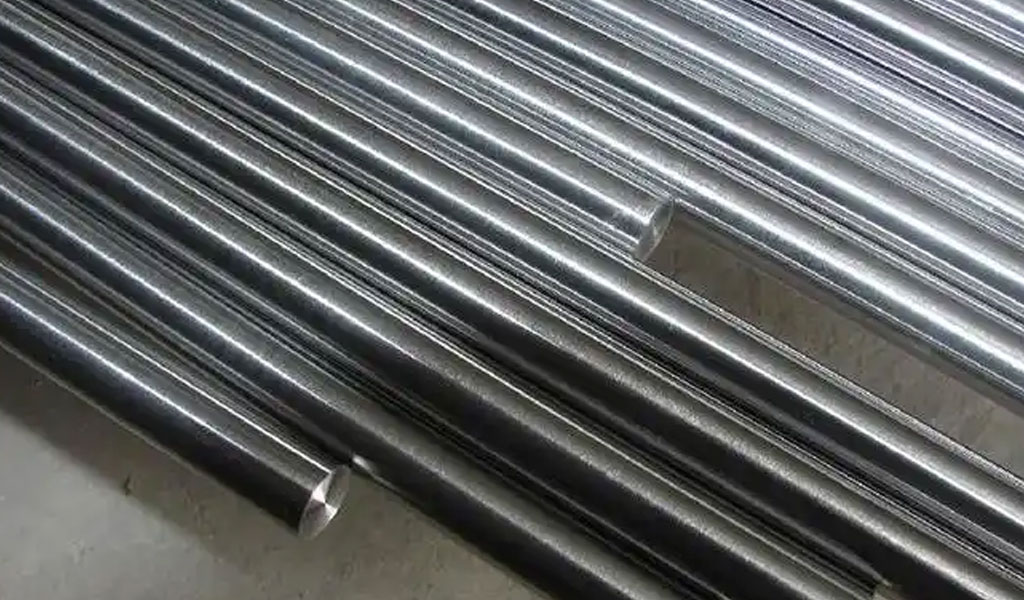
Titanium alloys have emerged as a cornerstone in the field of biomedical engineering, particularly in the development of medical implants and devices. Their unique combination of mechanical strength, biocompatibility, and corrosion resistance has made them indispensable in various medical applications. This article delves into the development and research status of medical titanium alloys, exploring their historical evolution, current applications, and future prospects.
Historical Evolution of Titanium Alloys
The journey of titanium alloys in medical applications began in the mid-20th century. Titanium was first discovered in 1791 by William Gregor, an English clergyman and amateur chemist, but its widespread use in industrial and medical applications did not commence until much later. The development of the Kroll process in the 1940s, which allowed for the economical production of titanium, was a pivotal moment. This process, invented by William J. Kroll, involved the reduction of titanium tetrachloride (TiCl₄) with magnesium, making titanium more accessible and affordable.
In the 1950s, titanium began to be used in medical implants, particularly in orthopedics and dentistry. The first significant application was in dental implants, where titanium's biocompatibility and osseointegration properties were recognized. Osseointegration, the direct structural and functional connection between living bone and the surface of a load-carrying implant, was a groundbreaking discovery by Per-Ingvar Brånemark in the 1960s. This property made titanium an ideal material for dental and orthopedic implants, as it allowed for stable and long-lasting integration with bone tissue.
Properties of Medical Titanium Alloys
Titanium alloys used in medical applications are prized for several key properties:
-
Biocompatibility: Titanium alloys are highly biocompatible, meaning they do not elicit an immune response or cause adverse reactions when implanted in the body. This is crucial for long-term implants, as it reduces the risk of rejection and inflammation.
-
Corrosion Resistance: Titanium forms a stable oxide layer on its surface, which provides excellent corrosion resistance. This is particularly important in the harsh biological environment of the human body, where other metals might corrode and release harmful ions.
-
Mechanical Strength: Titanium alloys offer a high strength-to-weight ratio, making them suitable for load-bearing applications such as hip and knee replacements. The alloys can withstand the mechanical stresses and strains associated with daily activities without failing.
-
Osseointegration: As mentioned earlier, titanium's ability to osseointegrate with bone tissue is a unique advantage. This property ensures that the implant becomes a stable part of the bone structure, enhancing its longevity and functionality.
-
Low Modulus of Elasticity: The modulus of elasticity of titanium alloys is closer to that of bone compared to other metals like stainless steel or cobalt-chromium alloys. This reduces the risk of stress shielding, where the implant takes on too much of the load, leading to bone resorption and implant loosening.
Common Titanium Alloys in Medical Applications
Several titanium alloys have been developed and optimized for medical use. The most commonly used alloys include:
-
Ti-6Al-4V (Ti64): This is the most widely used titanium alloy in medical applications. It contains 6% aluminum and 4% vanadium, which enhance its mechanical properties. Ti64 is known for its high strength, excellent corrosion resistance, and good biocompatibility. However, concerns about the potential toxicity of vanadium and aluminum ions have led to the development of alternative alloys.
-
Ti-6Al-7Nb: This alloy was developed as a vanadium-free alternative to Ti64. It contains 6% aluminum and 7% niobium, which improves its biocompatibility while maintaining mechanical strength. Niobium is considered more biocompatible than vanadium, making this alloy a safer choice for long-term implants.
-
Ti-13Nb-13Zr: This alloy is another vanadium-free option, containing 13% niobium and 13% zirconium. It offers excellent biocompatibility and a lower modulus of elasticity, which reduces the risk of stress shielding. This alloy is particularly suitable for applications where bone resorption is a concern.
-
Ti-29Nb-13Ta-4.6Zr (Ti29Nb13Ta4.6Zr): This alloy is designed for applications requiring high strength and excellent biocompatibility. It contains 29% niobium, 13% tantalum, and 4.6% zirconium, which enhance its mechanical properties and corrosion resistance.
Current Applications of Medical Titanium Alloys
Titanium alloys are used in a wide range of medical applications, including:
-
Orthopedic Implants: Titanium alloys are extensively used in orthopedic implants such as hip and knee replacements, screws, plates, and rods for fracture fixation. Their mechanical strength and biocompatibility make them ideal for load-bearing applications.
-
Dental Implants: Titanium's osseointegration properties make it a preferred material for dental implants. These implants provide a stable foundation for artificial teeth, improving oral health and functionality.
-
Cardiovascular Devices: Titanium alloys are used in the manufacture of cardiovascular devices such as stents, heart valves, and pacemaker cases. Their corrosion resistance and biocompatibility are crucial in these applications, as they come into direct contact with blood and tissue.
-
Spinal Implants: Titanium alloys are used in spinal implants such as cages, rods, and screws for spinal fusion and stabilization. Their mechanical strength and biocompatibility ensure long-term stability and functionality.
-
Maxillofacial Implants: Titanium alloys are used in maxillofacial implants for reconstructive surgery, such as plates and screws for facial fractures and deformities. Their biocompatibility and osseointegration properties are essential for successful outcomes.
Research and Development Trends
The field of medical titanium alloys is continually evolving, with ongoing research focused on improving their properties and expanding their applications. Some of the key research trends include:
-
Surface Modification: Researchers are exploring various surface modification techniques to enhance the biocompatibility and osseointegration of titanium alloys. Techniques such as plasma spraying, anodization, and chemical etching are being investigated to create bioactive surfaces that promote tissue integration and reduce the risk of infection.
-
Nanotechnology: The application of nanotechnology in titanium alloys is a growing area of research. Nanostructured surfaces and nanocomposites are being developed to improve the mechanical properties, biocompatibility, and corrosion resistance of titanium alloys. Nanotechnology also offers the potential to create smart materials that can respond to biological stimuli, enhancing their functionality.
-
Biodegradable Alloys: There is increasing interest in developing biodegradable titanium alloys that can be absorbed by the body over time. These alloys would eliminate the need for secondary surgeries to remove implants, reducing patient discomfort and healthcare costs. Research is focused on optimizing the degradation rate and ensuring that the degradation products are non-toxic and biocompatible.
-
Additive Manufacturing: Additive manufacturing, or 3D printing, is revolutionizing the production of medical titanium alloys. This technology allows for the creation of complex geometries and customized implants that are tailored to the individual patient's anatomy. Additive manufacturing also enables the production of porous structures that promote tissue integration and osseointegration.
-
Composite Materials: The development of composite materials that combine titanium alloys with other biocompatible materials, such as ceramics or polymers, is another active area of research. These composites can offer enhanced mechanical properties, biocompatibility, and functionality, making them suitable for a wider range of medical applications.
Challenges and Future Directions
Despite the significant advances in medical titanium alloys, several challenges remain. One of the primary challenges is the potential release of metal ions from the alloys, which can lead to adverse reactions and long-term health issues. Research is focused on developing alloys with improved corrosion resistance and reduced ion release.
Another challenge is the high cost of titanium alloys, which can limit their accessibility and widespread use. Ongoing research is aimed at developing more cost-effective production methods and alternative alloys that offer similar properties at a lower cost.
The future of medical titanium alloys lies in the integration of advanced technologies and materials science. The development of smart materials that can respond to biological stimuli, the use of nanotechnology to enhance properties, and the application of additive manufacturing to create customized implants are all areas of active research. Additionally, the exploration of biodegradable alloys and composite materials offers the potential to expand the applications of titanium alloys in medicine.
In conclusion, medical titanium alloys have come a long way since their initial discovery and application in the mid-20th century. Their unique combination of mechanical strength, biocompatibility, and corrosion resistance has made them indispensable in various medical applications. Ongoing research and development are focused on improving their properties, expanding their applications, and addressing the challenges associated with their use. As the field continues to evolve, medical titanium alloys are poised to play an even more significant role in the future of biomedical engineering and healthcare.
Reprint Statement: If there are no special instructions, all articles on this site are original. Please indicate the source for reprinting:https://www.cncmachiningptj.com/,thanks!
 PTJ® provides a full range of Custom Precision cnc machining china services.ISO 9001:2015 &AS-9100 certified. 3, 4 and 5-axis rapid precision CNC machining services including milling, turning to customer specifications,Capable of metal & plastic machined parts with +/-0.005 mm tolerance.Secondary services include CNC and conventional grinding, drilling,die casting,sheet metal and stamping.Providing prototypes, full production runs, technical support and full inspection.Serves the automotive, aerospace, mold&fixture,led lighting,medical,bicycle, and consumer electronics industries. On-time delivery.Tell us a little about your project's budget and expected delivery time. We will strategize with you to provide the most cost-effective services to help you reach your target,Welcome to Contact us ( sales@pintejin.com ) directly for your new project.
PTJ® provides a full range of Custom Precision cnc machining china services.ISO 9001:2015 &AS-9100 certified. 3, 4 and 5-axis rapid precision CNC machining services including milling, turning to customer specifications,Capable of metal & plastic machined parts with +/-0.005 mm tolerance.Secondary services include CNC and conventional grinding, drilling,die casting,sheet metal and stamping.Providing prototypes, full production runs, technical support and full inspection.Serves the automotive, aerospace, mold&fixture,led lighting,medical,bicycle, and consumer electronics industries. On-time delivery.Tell us a little about your project's budget and expected delivery time. We will strategize with you to provide the most cost-effective services to help you reach your target,Welcome to Contact us ( sales@pintejin.com ) directly for your new project.
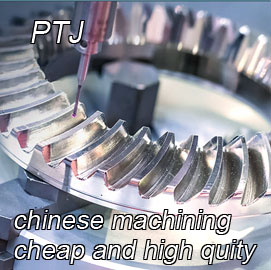
- 5 Axis Machining
- Cnc Milling
- Cnc Turning
- Machining Industries
- Machining Process
- Surface Treatment
- Metal Machining
- Plastic Machining
- Powder Metallurgy Mold
- Die Casting
- Parts Gallery
- Auto Metal Parts
- Machinery Parts
- LED Heatsink
- Building Parts
- Mobile Parts
- Medical Parts
- Electronic Parts
- Tailored Machining
- Bicycle Parts
- Aluminum Machining
- Titanium Machining
- Stainless Steel Machining
- Copper Machining
- Brass Machining
- Super Alloy Machining
- Peek Machining
- UHMW Machining
- Unilate Machining
- PA6 Machining
- PPS Machining
- Teflon Machining
- Inconel Machining
- Tool Steel Machining
- More Material

